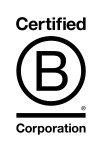
 As we step into 2025 with a new administration shaping the country’s priorities, private companies must adapt to an evolving landscape of regulations and societal expectations. Impact priorities—from environmental sustainability to economic equity—remain critical, but the strategies to achieve them must align with new policies and frameworks. For companies committed to creating positive change, the challenge lies in staying true to their values while navigating this shifting environment.
As we step into 2025 with a new administration shaping the country’s priorities, private companies must adapt to an evolving landscape of regulations and societal expectations. Impact priorities—from environmental sustainability to economic equity—remain critical, but the strategies to achieve them must align with new policies and frameworks. For companies committed to creating positive change, the challenge lies in staying true to their values while navigating this shifting environment.
Staying True to Company Values Amid Change
While regulatory shifts can influence the execution of impact strategies, they don’t have to redefine your company’s core values. Instead, they present an opportunity to reaffirm and refine your mission. Leaders should:
- Reassess Core Objectives: Regularly revisit your company’s mission and ensure it aligns with evolving impact goals. This reflection can help determine whether existing initiatives effectively support your long-term vision.
- Engage Stakeholders: Involve employees, investors, and community partners in conversations about impact priorities. Diverse perspectives can uncover new opportunities and ensure alignment with stakeholders’ values.
- Communicate Commitment: Clearly articulate how your company’s actions reflect its values, even as strategies evolve. Transparent communication fosters trust with customers, partners, and employees.
Understanding the Regulatory Landscape
The incoming administration’s policies will shape the regulatory environment for impact investing and corporate responsibility. Key areas to monitor include:
- Climate and Environmental Regulations: Anticipated shifts in environmental standards could influence sustainability goals, particularly for industries with significant carbon footprints. Companies may need to reassess their energy usage, supply chain practices, and emissions reduction plans.
- Diversity, Equity, and Inclusion (DEI) Mandates: With growing emphasis on supporting underrepresented communities, new regulations could encourage or require companies to prioritize DEI initiatives. Businesses might need to expand efforts to engage minority-owned suppliers or invest in underserved areas.
- Tax Incentives and Impact Reporting: Updates to tax policies may introduce new incentives for impact-driven initiatives, such as renewable energy investments or workforce development programs. Additionally, increased reporting requirements could push companies to enhance transparency around their social and environmental impact.
Investing in What Matters Most
Private companies are uniquely positioned to invest in areas that align closely with their values. These investments not only advance impact goals but also drive long-term business success. Consider these strategies:
- Focus on Local Communities: Channel resources into projects that directly benefit the regions where your employees live and work. Whether through small business lending, affordable housing, or community development, localized impact creates tangible results and strengthens your company’s connection to its stakeholders.
- Support Mission-Aligned Partnerships: Collaborate with organizations that share your vision for social and environmental progress. For example, CNote connects companies with mission-driven financial institutions, enabling investments in underserved communities while delivering steady financial returns.
- Measure and Report Impact: Establish clear metrics to evaluate the effectiveness of your investments. Demonstrating measurable progress toward your impact goals reinforces accountability and showcases the value of your initiatives.
Looking Ahead
As priorities shift under the incoming administration, private companies have an opportunity to lead by example. By staying true to their values, navigating regulatory changes, and investing in meaningful initiatives, businesses can drive both impact and innovation in 2025 and beyond. The key lies in agility and commitment—adapting strategies while remaining steadfast in the pursuit of positive change.
At CNote, we believe in empowering companies to align their financial strategies with their values. Whether through cash management solutions or impact investing, our platform provides the tools and partnerships needed to navigate this new era with confidence. Let’s work together to turn challenges into opportunities for growth and impact.







